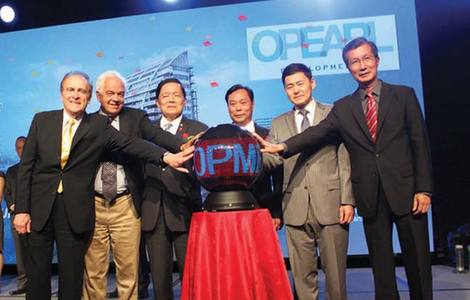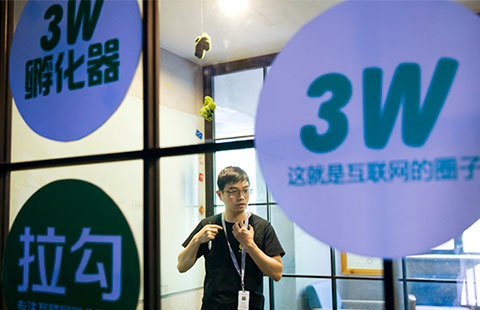White House needs China hands with bilateral vision
Updated: 2015-06-08 06:31
By Chen Weihua(China Daily USA)
|
||||||||
While cyber hacking and the South China Sea continued to dominate headlines regarding China and the US over the past week, news came that Evan Medeiros, senior director for Asian affairs at the National Security Council, stepped down last Thursday.
In fact, days and weeks before the news was made public by the Washington Post on Thursday, there had been talk that Medeiros has been job hunting with some consulting firms in town.
Daniel Kritenbrink, the deputy chief of mission at the US Embassy in Beijing, is succeeding Medeiros, something people also knew days and weeks before the Post report.
Medeiros is regarded as an expert on China affairs. But some inner-circle experts in Washington feel strongly that there is a shortage of such people in the White House these days, especially ones with a good vision for the bilateral relationship between the world’s two largest economies.
Some pundits in the US sigh that there are no Henry Kissingers, Brent Scowcrofts or Henry Paulsons in the current Obama administration to direct such an important bilateral relationship.
Medeiros drew fire in February last year when he, during a speech at the Center for American Progress (CAP), blamed China for the tensions in the South China Sea. Chinese Ambassador to the US Cui Tiankai blasted his comments also at a CAP talk a week later.
Medeiros seemed more cautious after that. On several occasions over the past year, reporters were told that his speeches were off the record.
In a talk with CCTV in February, Medeiros, formerly a senior political scientist at the Rand Corporation, was upbeat, saying “Right now, the US-China relationship is in great shape.”
He said that since US President Barack Obama and Chinese President Xi Jinping met in Sunnylands, California, in 2013, the two countries agreed to develop their relationship defined by cooperation on regional and global challenges while effectively managing their differences.
“I think we have achieved a lot in that regard in the past several years,” he said.
Medeiros said the US did not believe conflict was inevitable between China and the US, adding that “we agreed that we would work to make sure that rivalry didn’t become inevitable.”
“So that’s the basic framework for our relationship, and we think we’ve succeeded in accomplishing that in recent years,” he said.
The Post quoted a statement from NSC spokesman Alistair Baskey, calling Medeiros “a key architect of the president’s Asia rebalance strategy, and especially toward China.”
“He helped restructure the content and operation of our China policy in ways that shaped China’s choices as a rising power,” the statement said.
However, the rebalance strategy, including the military and economic components, has been seen by many, both inside and outside China, as a US strategy aimed at maintaining US primacy in the region and curtailing China’s growing influence. Some believe the strategy has escalated the possible rivalry between China and the US.
Hugh White, a professor of strategic studies at Australian National University, wrote on Asia Society’s ChinaFile blog on Saturday that it is time for America to consider an accommodation with China.
“This would not be easy. America would need to treat China as a full equal for any deal to stand a chance, and Americans have never treated any country as an equal before,” said White, author of the book The China Choice: Why America Should Share Power.
In a talk with CNN’s Christiane Amanpour last Thursday, Cui Tiankai rebuked the US accusation that China has been changing the status quo in South China Sea.
“The fact is the status quo has been changed by others for a long, long time. So what we are doing is to sort of restore the status quo as it should be, so there is no reason for others to make such accusations against China,” Cui said.
He hoped that CNN would also show to people what others have done for a long, long time in the region, clearly referring to the land reclamations on many outposts there by countries such as Vietnam and the Philippines.
Saying that what China is building there is mainly for civilian purposes, Cui said there is really no need for others to send so many military reconnaissance planes to the region.
Frequent close-in US reconnaissance on China has been regarded by the Chinese government, and some pundits in Washington, as a provocative act.
“This is really against the letter and the spirit of the Convention of the Law of the Sea,” Cui said of the UN agreement also known as UNCLOS. Unlike most countries in the world, the US has not ratified the agreement.
Contact the writer at chenweihua@chinadailyusa.com.

 Top 10 investor countries and regions
Top 10 investor countries and regions
 Beijing showcases Olympic exhibits and visions
Beijing showcases Olympic exhibits and visions
 Ten photos you don't wanna miss - June 11
Ten photos you don't wanna miss - June 11
 Youth of today in Sudan
Youth of today in Sudan
 EU sanctions hamper Italian-Russian commercial ties: Putin
EU sanctions hamper Italian-Russian commercial ties: Putin
 Across Canada(June 11)
Across Canada(June 11)
 US dollar inspired art to be auctioned at Sotherby
US dollar inspired art to be auctioned at Sotherby
 Coffee shop where Premier Li met entrepreneurs
Coffee shop where Premier Li met entrepreneurs
Most Viewed
Editor's Picks

|

|

|

|

|

|
Today's Top News
Pentagon to greet General from China
Suu Kyi begins groundbreaking visit
Michelle Kwan to work for Hillary Clinton campaign
China, US take fresh views on TPP and AIIB
G7 accused of ignoring the facts over South China Sea
Obama weighs sending several hundred more US troops to Iraq
MSCI delays including China A shares in benchmark index
7 Chinese gay couples hold wedding ceremony in West Hollywood
US Weekly

|

|






